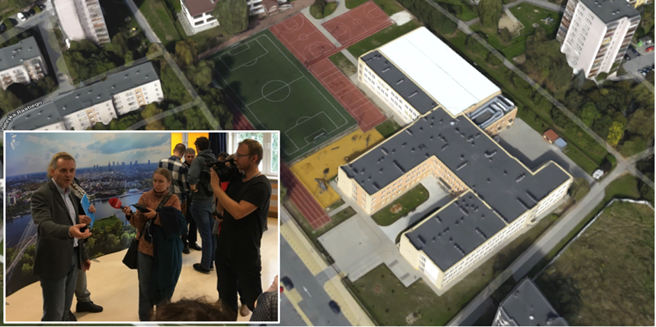
ICA 2019 in Aachen gave an opportunity to present results of interesting questionnaire survey done in large primary school in Poland which focused on a correlation between room acoustics and changes in the communication, behaviour and wellbeing of students and teachers.
The survey took place in modern school building, completed in 2012 which according to the design did not take room acoustics into account at all. Typical, hard finishing of the rooms (plastered masonry walls, reinforced concrete floor slabs, hard floors etc.) plus a total of 1200 students meant that the school was very loud and reverberant.
In 2016, under strong pressure of parents, the City Council of Warsaw decided to allocate funds for comprehensive acoustic treatment of whole school building. Works, performed according to the design of dr inż. arch. Andrzej Kłosak (acoustics) and mgr inż. arch. Weronika Nowak (architecture) were finished in August 2018.
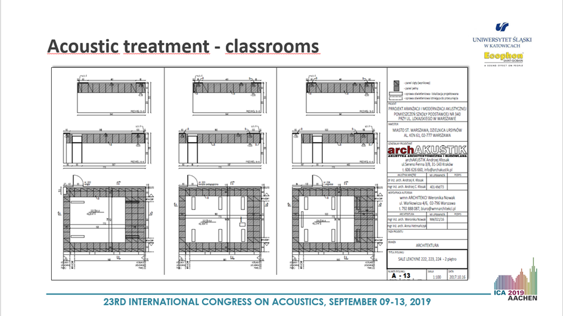
Acoustic treatment covered all classrooms (36), after-school clubs (6), corridors and lobbies, canteen, auditorium, gymnasiums and sport hall. Its main objective was to fulfil the demands of the new Polish PN-B-02151-4:2015-06 acoustic standard. Acoustic measurements done before and after refurbishment (in every treated room) confirmed a subjectively perceived feeling of deep change.
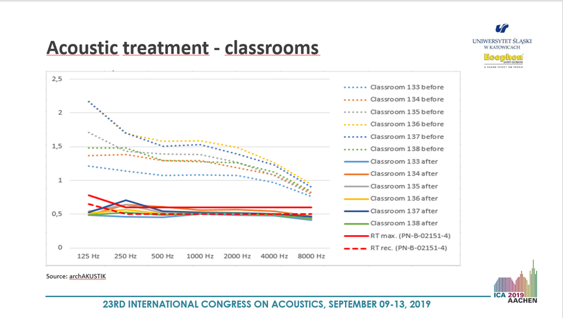
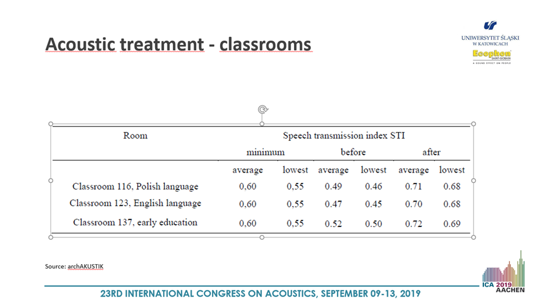
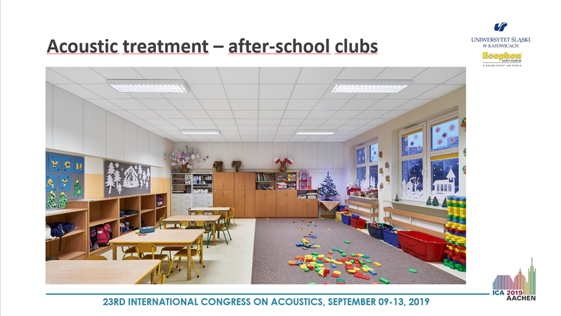
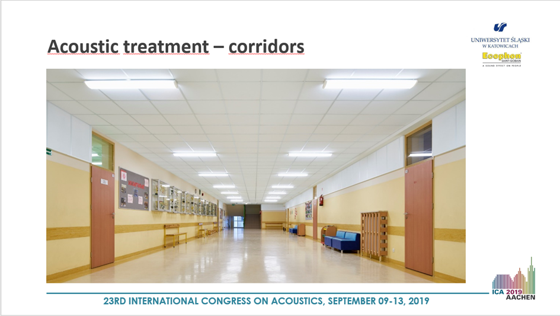
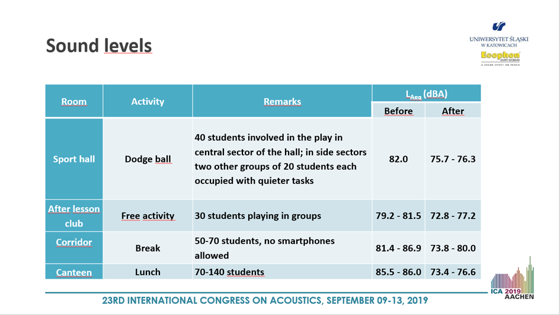
378 students from 2nd – 8th grade and 40 teachers participated in the study. 75% of the study sample was from the fourth and fifth grade (10-11 years old).
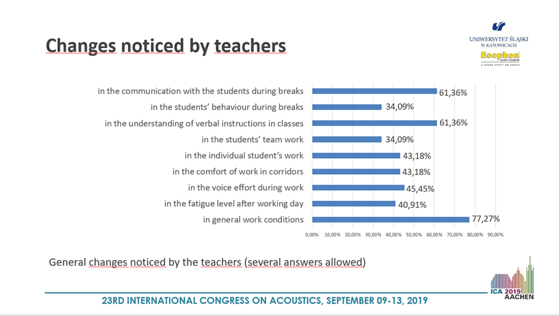
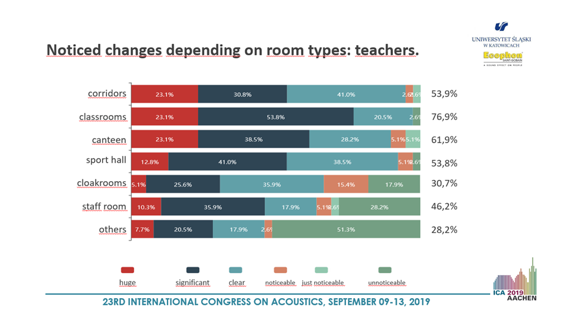
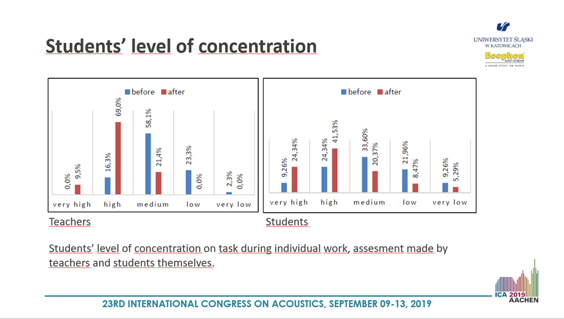
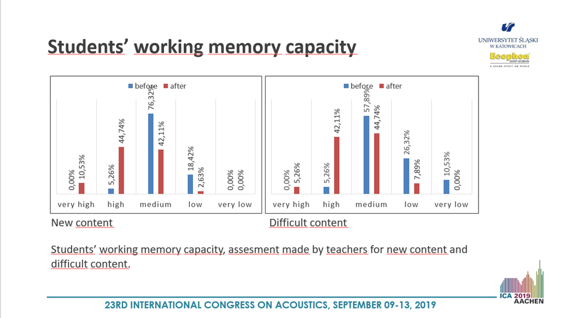
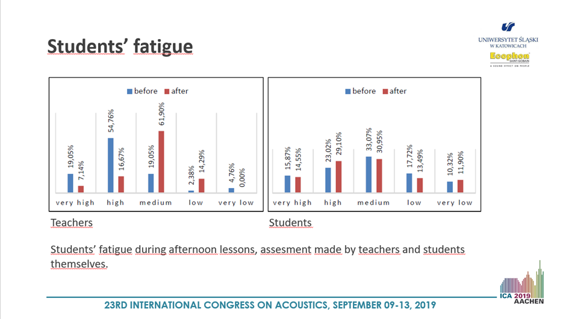
Summary findings:
- Teachers asked about pupils performance and behaviour noticed positive changes in level of concentration and pace of work (both during individual and group work), task fulfillment, short term memory capacity, durability of memory, level of fatigue and aggression and, above all, level of speech intelligibility.
- When asked about their working conditions, they can see benefits in lower fatigue, lower voice effort, lower prevalence of hoarse, headache and tinnitus and lower level of stress.
- Pupils asked about their own performance noticed better concentration, speech intelligibility and pace of work. They pointed out lower level of aggression. However their sensitivity to these changes are lower than teachers. They can’t see any difference in the level of fatigue.
- Both groups pointed out higher pupils’ school achievements after acoustic renovation of the building, but the teachers found stronger correlation. 76% of teachers assess that pupils’ school achievements are higher and 14% said that semester grades are far better (while 86% said that changes are small or none). Corresponding percentage for pupils are 29% and 26% (while 69% pointed small or none changes and 5% reported worse grades).
Data collected in the survey clearly confirms positive opinions spontaneously expressed by the users just after school modernization. It shows the importance of the acoustical environment of the school regarding the wellbeing and performance of both, pupils and teachers. Thus it proves the need of wide acoustic treatments in existing buildings to be designed according to the new acoustic standard.
The full ICA 2019 conference paper can be found here.
For more info on this study please contact Mikolaj Jarosz

